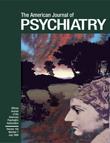Including Children and Adolescents With Schizophrenia in Medication-Free Research
Abstract
OBJECTIVE: There has been an increasing focus on the ethical issues raised by studies requiring the withdrawal of effective medication in schizophrenic adults. This article examines the risks and benefits of a medication-free period for pediatric patients with treatment-refractory schizophrenia who are participating in an ongoing study. METHOD: Between April 1993 and March 1998, 31 children and adolescents were admitted with a diagnosis of treatment-resistant, childhood-onset schizophrenia. Parental consent was obtained so that patients could participate in a medication-free research period. Patients were evaluated at screening, at the end of a 4-week washout, at the completion of a 6- to 8-week atypical neuroleptic trial, and at a 2- to 4-year follow-up. RESULTS: At the completion of a 4-week drug-free period, seven patients (23%) were diagnosed with another disorder on the basis of data gained from the drug-free period and their lack of schizophrenic symptoms. Their revised diagnoses were posttraumatic stress disorder (N=1), an atypical psychosis labeled “multidimensionally impaired” (N=4), and personality disorder (N=2). At follow-up, three of these patients remained free of neuroleptic therapy. For eight patients (26%), the washout was curtailed because of rapid and severe deterioration of their schizophrenic symptoms. CONCLUSIONS: For children and adolescents with treatment-refractory schizophrenia, a medication-free period can be conducted safely for at least 4 weeks for inpatients. Such trials are useful on clinical grounds and for providing homogeneous patient groups for research. This study also highlights the necessity of having access to hospitalization to observe children and adolescents with psychotic symptoms while medication free.



